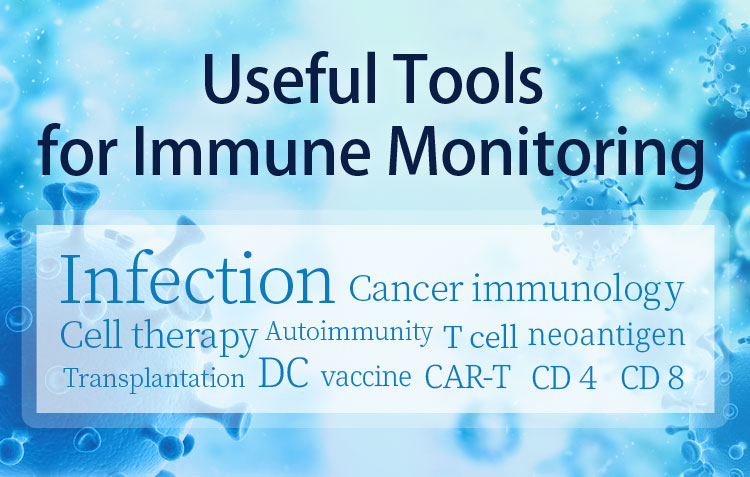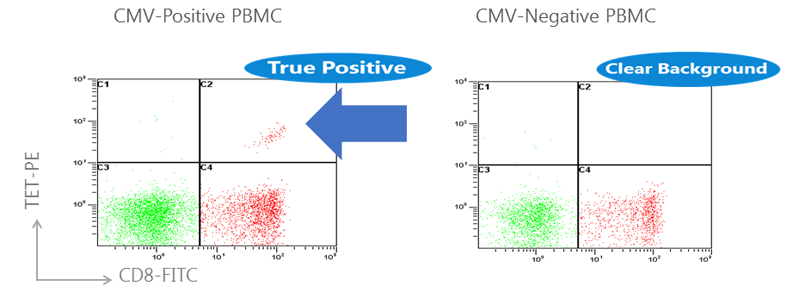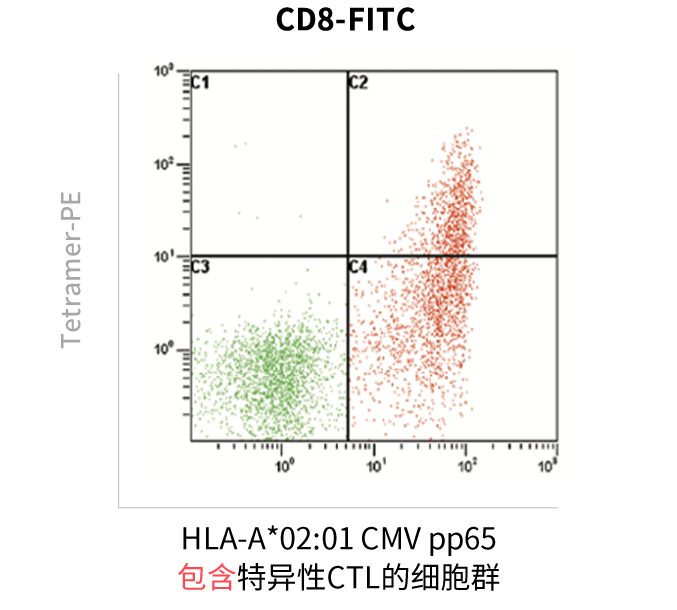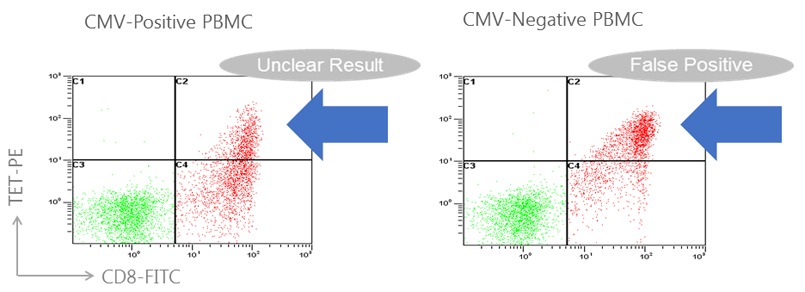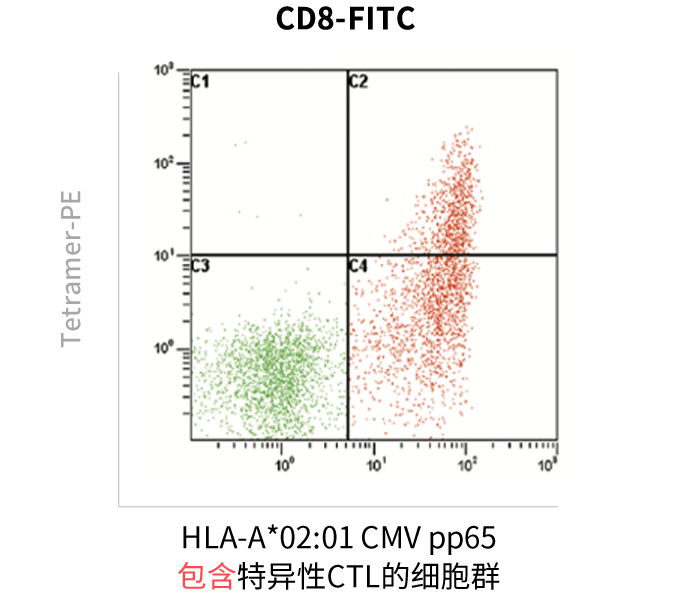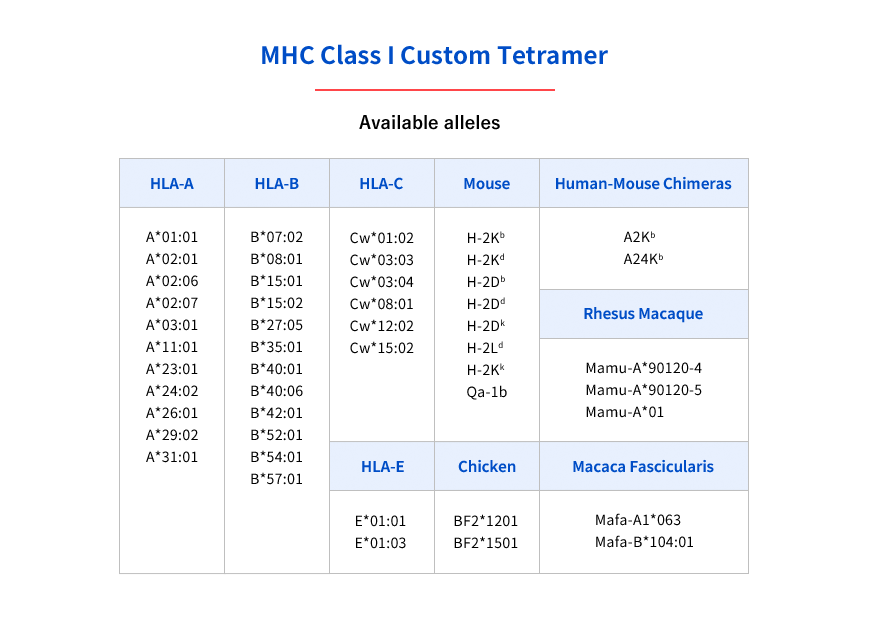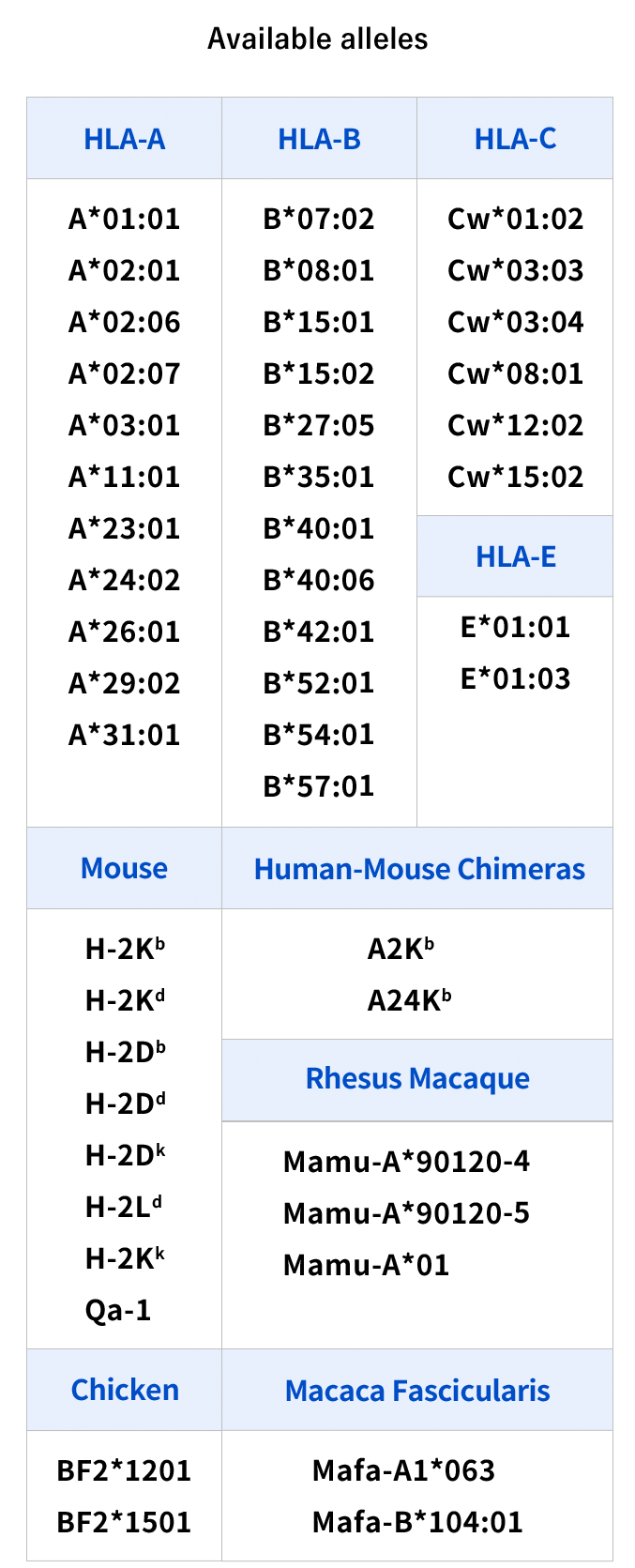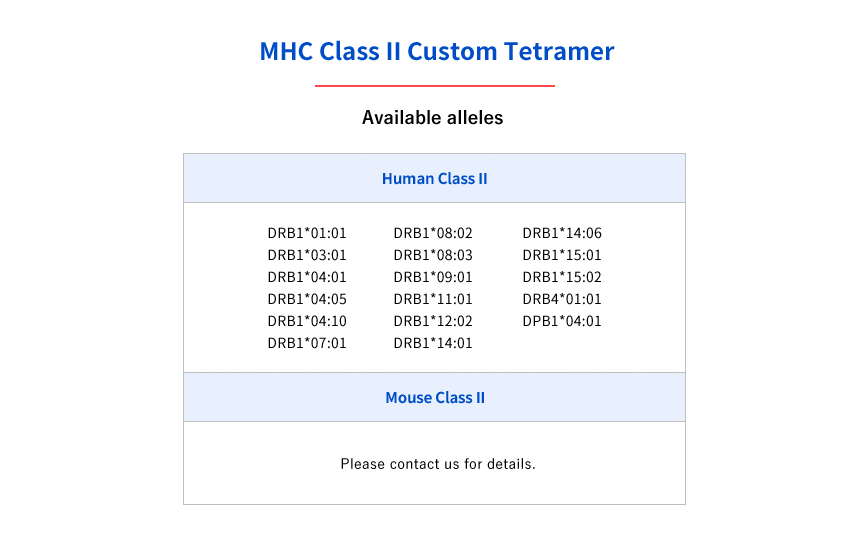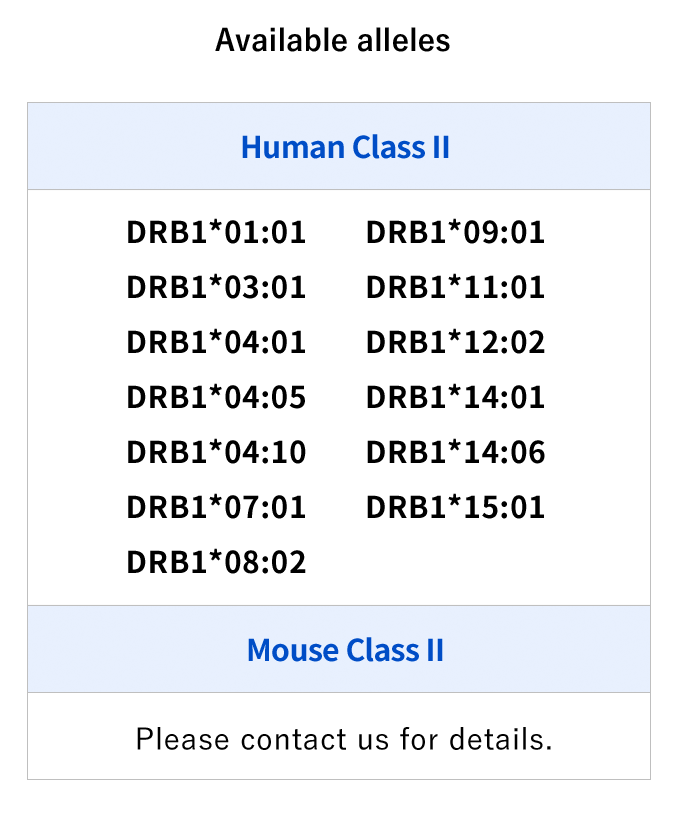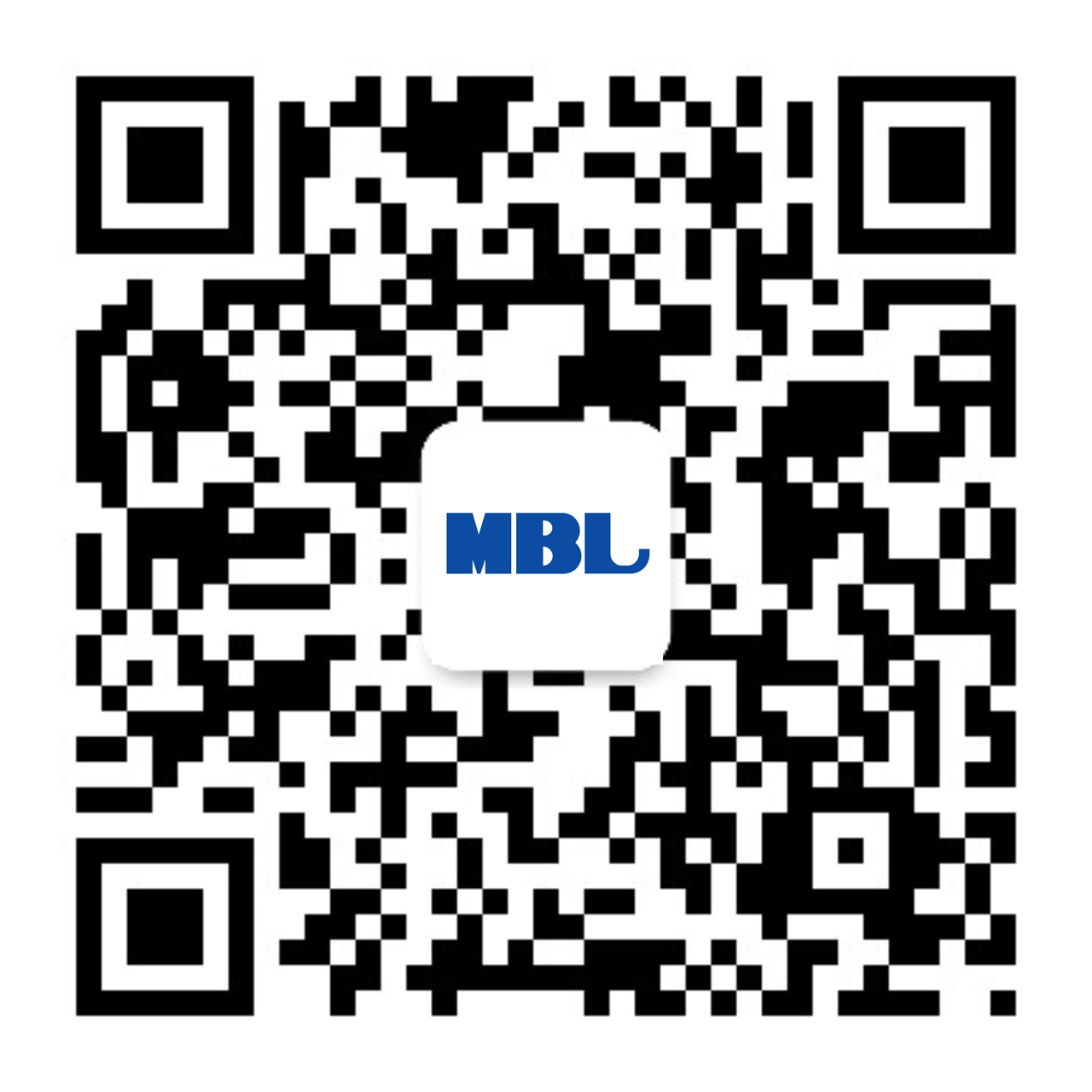



Webinar
Our MHC Tetramers enable rapid and simple detection
of antigen-specific T cells of your interest.
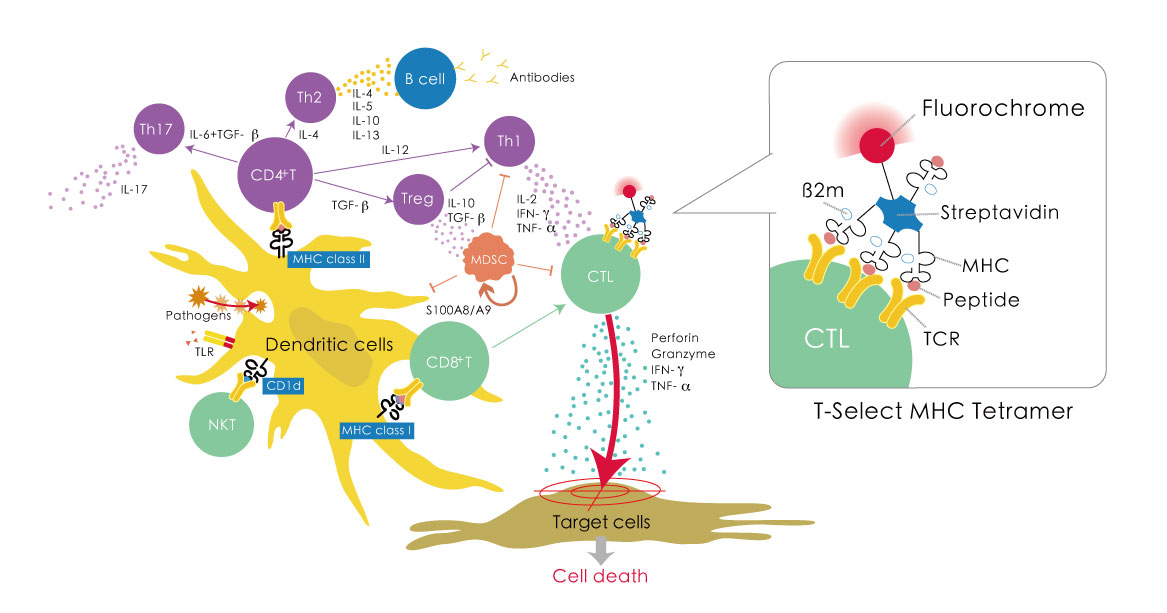
Advantages over Competitors
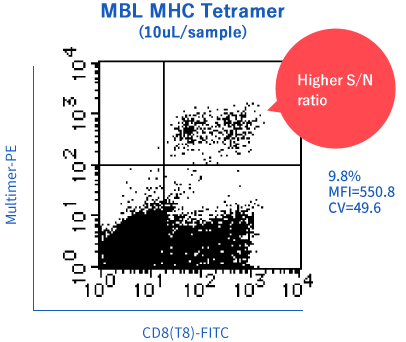
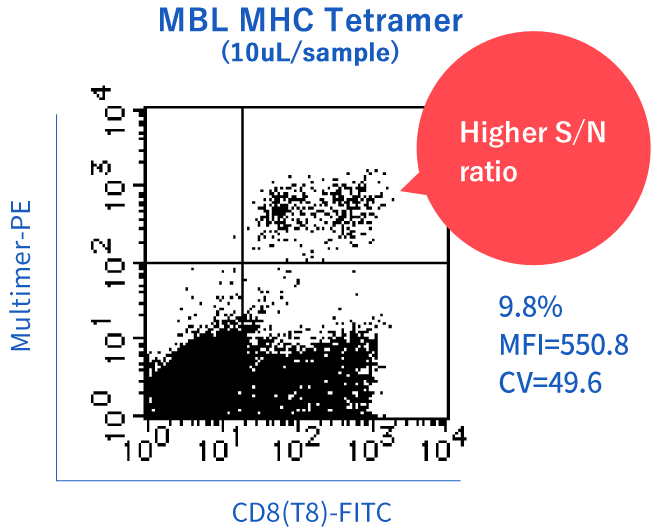
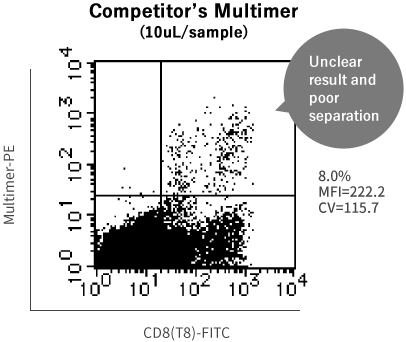
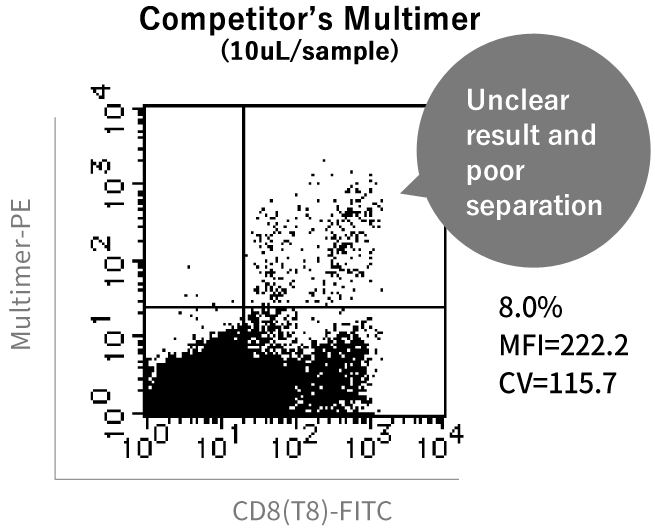
Comparison with Competitors(MHC Class I)
| MBL MHC Class I Tetramer | Competitor’s Multimer | |
|---|---|---|
| Reactivity | Our MHC tetramers show high specificity due to a patented mutation (alanine to valine at position 245) in the MHC class I heavy chain, which reduces undesirable CD8-MHC interaction. | No comments regarding reactivity of competitor’s multimers. |
| Quality | Optimized mixing ratio of raw materials dramatically improves tetramer synthesis efficiency and achieves high sensitivity. | Competitor’s multimers sometimes show low reproducibility due to difficulties in quality and quantity control of the number of MHC molecules when producing multimers. |
| Stability | Can be stored at 4°C in refrigerated form for several months, and is ready-to-use. | Storage stability is equivalent to MBL MHC tetramer. |
| Custom MHC Tetramer | Availability of more than 60 types of MHC alleles. | Only 20-30 types of alleles. |
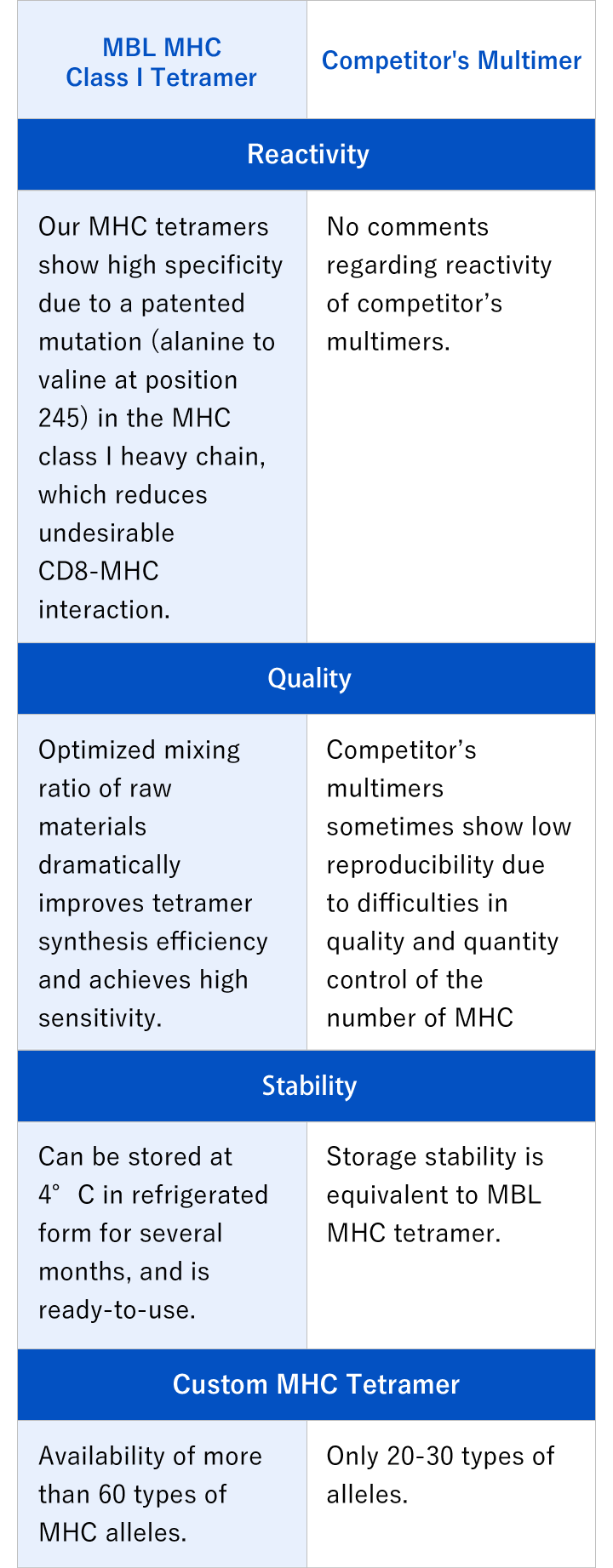
MHC tetramer is used worldwide.
using MHC Tetramer
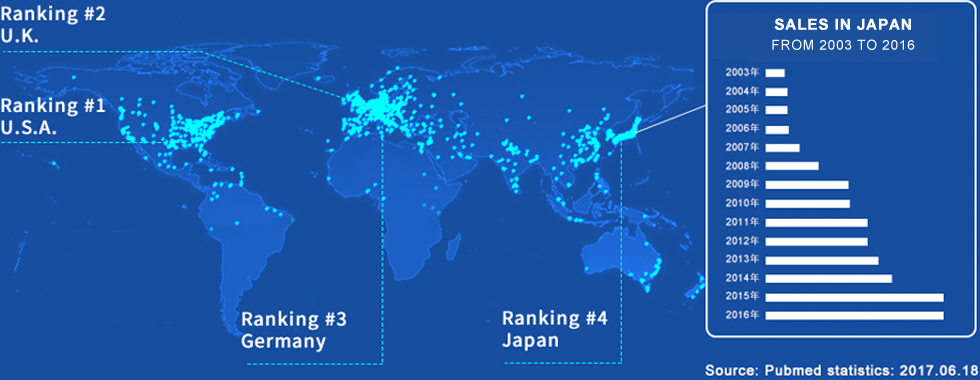
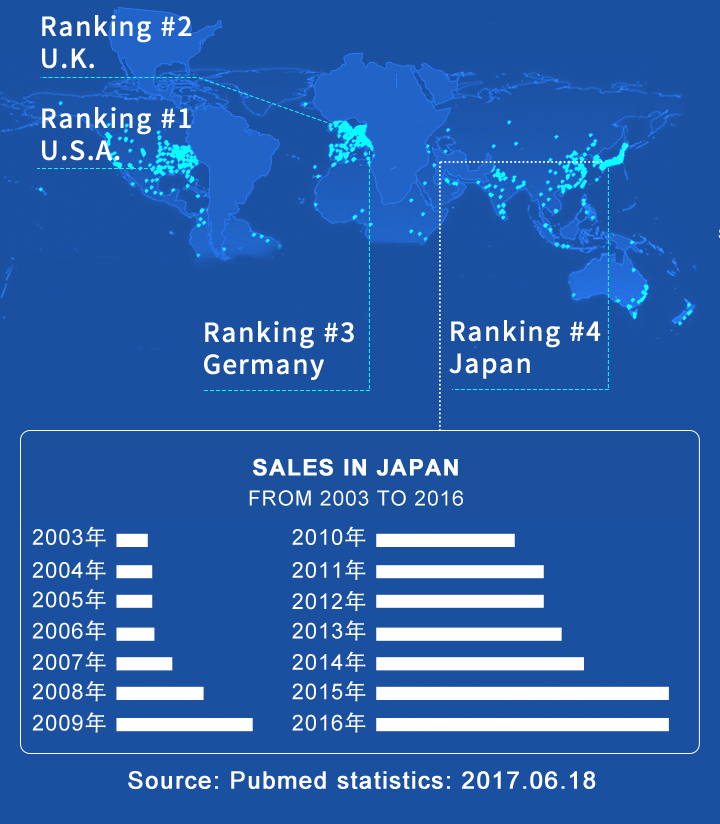
Process of MHC Class I Tetramer Synthesis
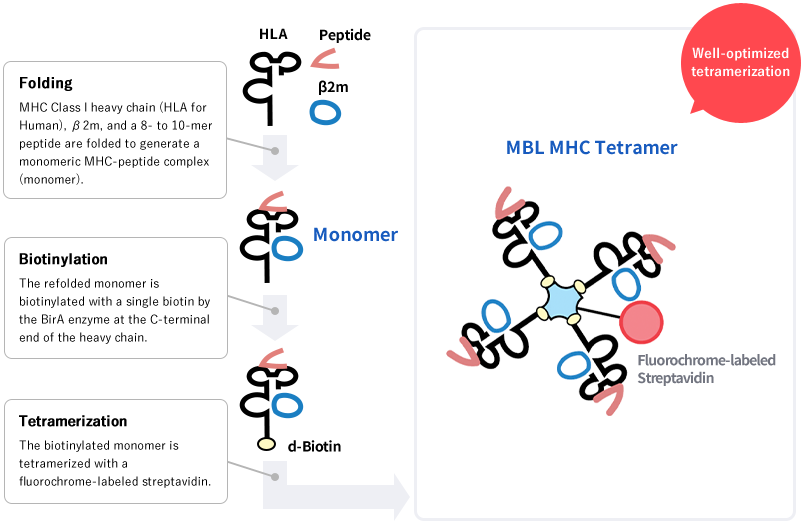
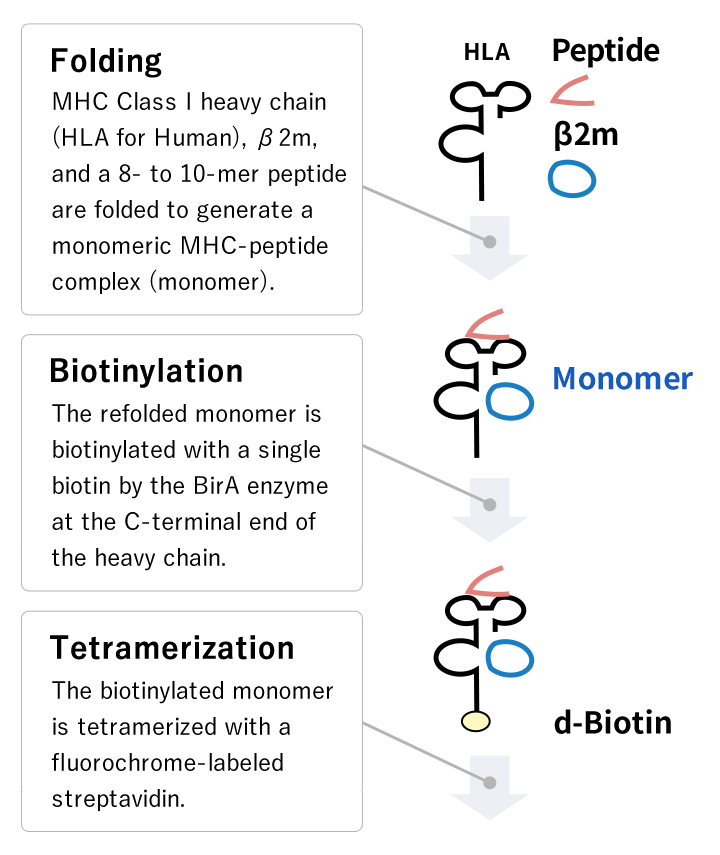
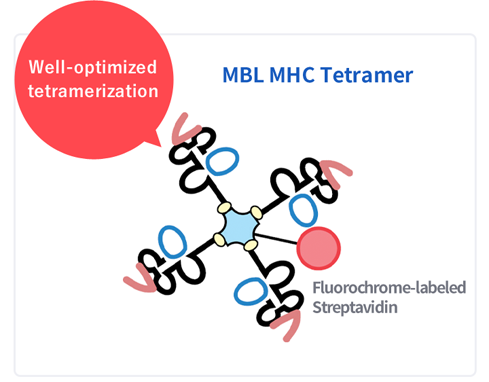
Detection of Antigen-Specific T Cells by MHC Tetramers
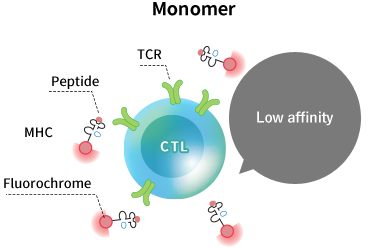
Binding activity of the monomer to TCR is too weak to remain bound on the target T cell. It is easily detached from the T cell.


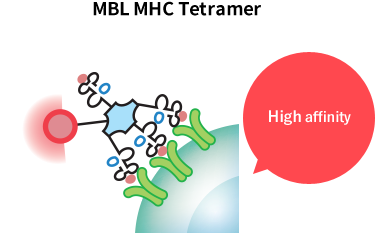
To overcome this difficulty, the monomer is biotinylated and tetramerized with a fluorescence-labeled streptavidin to increase avidity to TCR. It enables the tetramer to achieve stable binding to TCR on the antigen-specific T cell.
Patented technology to increase specificity
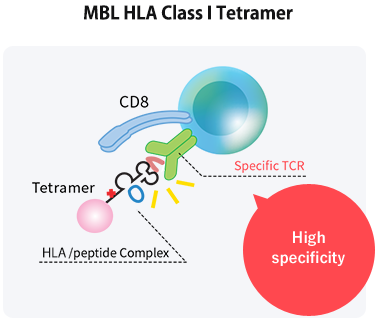
Our HLA Class I tetramer has a mutation in the α3 domain on HLA. It minimizes undesirable binding to CD8 molecules and dramatically improves specificity to detect target T cells.



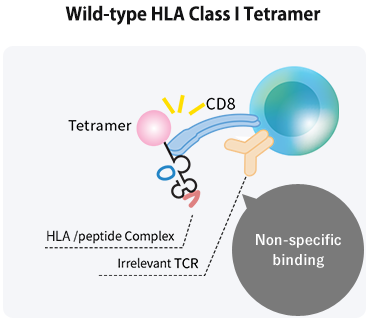
CD8 is known to bind HLA to assist in TCR and HLA binding. This means that HLA contains a CD8-binding site.
Therefore, it occasionally causes false positive signals between HLA tetramers and CD8-positive T cells.



*Please note that α3 mutation is adopted only in Human HLA Class I Tetramers, but not in other species including Mouse MHC Class I Tetramers.
Q&A
How do I order MBL’s MHC Tetramers?
We have a wide selection of class I (multiple species) and class II (human) alleles available for custom tetramer synthesis. Contact us with the allele, peptide sequence, and fluorochrome you wish to order. We recommend customers do a literature search to determine the best peptide/allele combination to detect the specific T cells of interest.
Our tetramer R&D manufacturing team will assess the theoretical feasibility (e.g. likelihood of successful tetramer manufacture) of that combination. Once the team determines feasibility, you will receive a quote with the price of the tetramer, as well as a projected lead-time.
How long will it take for delivery?
Once your order is booked and a purchase order is received, you will be quoted a ship date by customer service. Delivery time is contingent on the type of tetramer you request.
Catalog : 3-30 days. Shipped next day if the tetramer is in stock, or 2-4 weeks if the monomer is available, but we have to prepare the tetramer.
Custom : Up to 60 days if peptide has to be ordered/synthesized. Can be produced in 3-4 weeks if we have the peptide on hand.
Is there continuous after-sales service after purchase?
Our technical support team in Japan will support your problem, and they strive to satisfactorily resolve your issue. Please feel free to ask any questions and concerns in use of our MHC tetramers.
Which research fields are MHC tetramers used in?
MHC tetramers are used for the detection and monitoring of antigen-specific T cells to study the adaptive immune response, including T cell development, disease progression, and evaluation of therapeutics, vaccinations, and other interventions that may have an impact on cellular immune responses. In clinical trials, MHC tetramers are used to monitor T cells that may be related to either the cause of illness (e.g. diabetes or autoimmune disease) or the fight against an ailment (e.g. cancer, infection).
There are numerous citations of MBL’s MHC tetramers worldwide.
Please refer to the citation list here.
MHC Tetramer Custom Services
| MHC Tetramer |
Various alleles for the following antigens are available.
|
|---|
| MHC Custom Tetramer |
We can manufacture a custom MHC tetramer based on your needs (Over 60 alleles available).
|
|---|---|
|
All-in-one kits to prepare custom tetramers in your laboratory.
|
Related products
Peptides loaded on MHC, CD8 antibodies
We provide numerous custom MHC alleles that can meet your needs worldwide.
